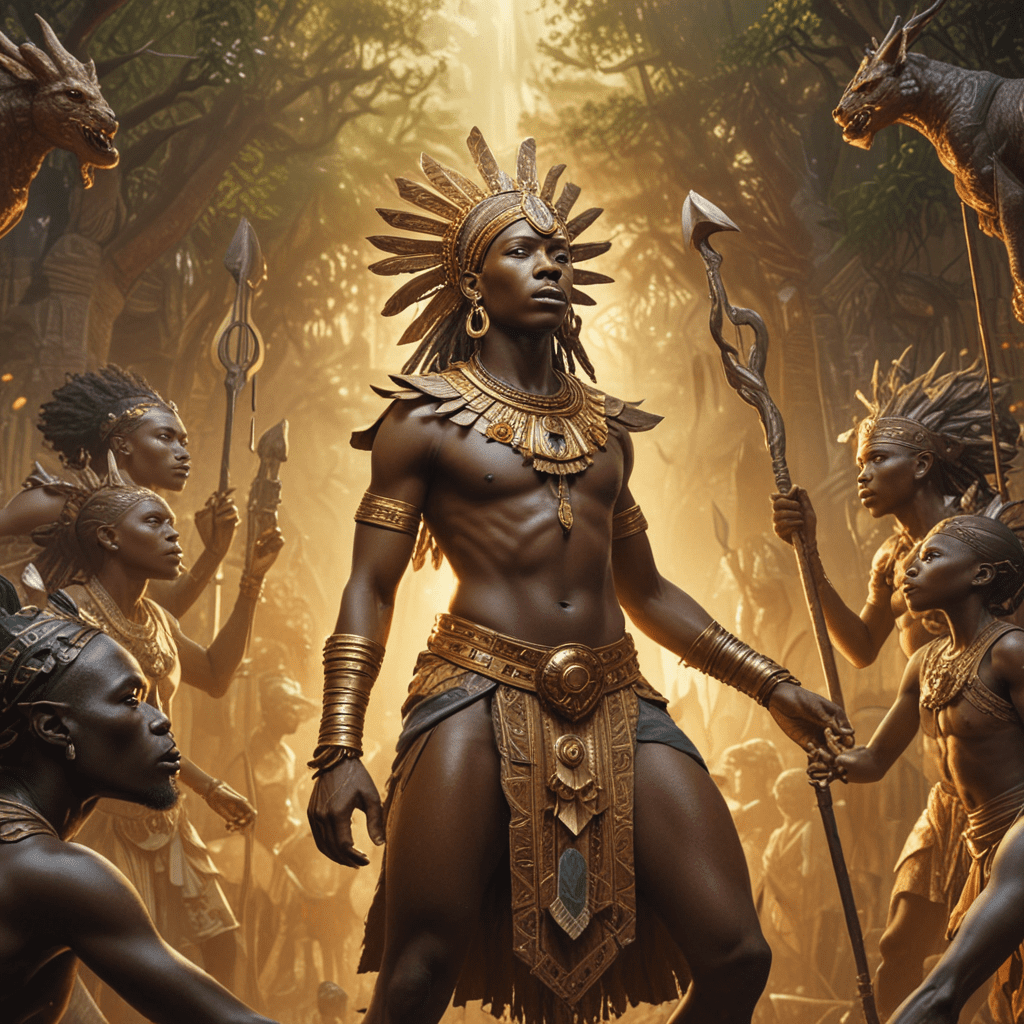Legendary Heroes of African Mythology
Introduction
The rich tapestry of African mythology is woven with tales of legendary heroes whose extraordinary feats and divine attributes have left an indelible mark on the continent's cultural heritage. From cunning tricksters to valiant warriors and wise counselors, these mythological figures embody the virtues, aspirations, and fears of their respective societies. By exploring the stories of these legendary heroes, we gain insights into the beliefs, values, and imaginative landscapes of ancient African civilizations.
Anansi, the Trickster God
Anansi, the enigmatic trickster god, is a central figure in West African mythology. This anthropomorphic spider is known for his cunning and mischievous nature, often outwitting more powerful beings and using his cleverness to achieve his goals. Anansi's tales, often told as cautionary tales, teach lessons about the importance of intelligence, adaptability, and the consequences of trickery. He is a symbol of resilience, resourcefulness, and the ability to triumph over adversity through wit and guile.
from West African mythology. He is credited with founding the Mali Empire in the 13th century. Sundiata's epic journey, as told in the Mandinka epic "Sunjata," recounts his struggle to overcome physical disabilities, unite rival clans, and establish a powerful kingdom. He is revered as a symbol of courage, determination, and the power of perseverance.
Hatshepsut, the Female Pharaoh of Egypt
Hatshepsut is a remarkable female pharaoh of the 18th dynasty of Ancient Egypt. Her reign is renowned for its unprecedented prosperity, architectural achievements, and diplomatic missions. Hatshepsut broke gender norms by assuming the title of pharaoh, becoming one of the most successful rulers in Egyptian history. Her legacy continues to inspire women and leaders worldwide as a testament to the power of ambition, innovation, and female leadership.
Chaka Zulu, the Father of the Zulu Nation
Shaka Zulu is a legendary warrior-king from Southern Africa. He is credited with founding the Zulu Kingdom in the early 19th century. Shaka's military innovations, such as the use of the assegai and the "buffalo formation," transformed warfare in the region. His leadership and strategic prowess led to the establishment of a powerful empire that played a significant role in shaping the history of Southern Africa.
Mansa Musa, the Richest Man in History
Mansa Musa I was the 10th Mansa (king) of the Mali Empire, ruling from 1312 to 1337. He is widely regarded as the wealthiest individual in history. Mansa Musa's pilgrimage to Mecca in 1324-1325, with a massive entourage and an extravagant display of gold, left a profound impression on the world. His reign is remembered for its cultural achievements, architectural marvels, and promotion of trade and education.
Frequently Asked Questions (FAQs)
Q: What is the significance of Anansi in African mythology?
A: Anansi is a trickster god who embodies intelligence, adaptability, and the power of wit. His tales teach lessons about the consequences of trickery and the importance of using cunning to overcome adversity.
Q: Who is Sundiata Keita, and what is his legacy?
A: Sundiata Keita is a legendary figure known as the Lion King of Mali. He founded the Mali Empire in the 13th century and is revered for his courage, determination, and the power of perseverance.
Q: What makes Hatshepsut an exceptional figure in Egyptian history?
A: Hatshepsut was a female pharaoh who broke gender norms and ruled Egypt during a period of unprecedented prosperity. Her architectural achievements, diplomatic missions, and innovative leadership have inspired generations of women and leaders.
Q: How did Shaka Zulu revolutionize warfare in Southern Africa?
A: Shaka Zulu was a brilliant military strategist who introduced new tactics and weapons, including the assegai and the "buffalo formation." His military innovations transformed warfare in the region and helped establish the Zulu Kingdom as a formidable power.
Q: Why is Mansa Musa considered the richest man in history?
A: Mansa Musa I was the Mansa of the Mali Empire in the 14th century. His wealth was legendary, and his lavish pilgrimage to Mecca in 1324-1325 introduced the world to the riches of his kingdom.




